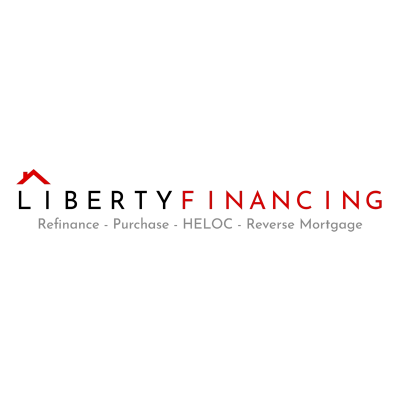Managing Closing Costs With An Fha Loan: 6 Tips for Budgeting
Navigating the maze of closing costs associated with an FHA loan can be daunting, but expert guidance is at hand. This article distills wisdom from top industry professionals to help manage and budget for these expenses effectively. Discover key strategies and practical tips to minimize financial surprises during the home-buying process.
- Prepare Early and Negotiate FHA Closing Costs
- Plan Ahead: Save, Negotiate, and Seek Assistance
- Understand and Budget for Unexpected Home Expenses
- Explore Options to Offset FHA Closing Costs
- Budget Wisely for FHA Loan Closing Expenses
- Anticipate and Plan for All Closing Costs
Prepare Early and Negotiate FHA Closing Costs
Closing costs on an FHA loan can sneak up on you if you're not prepared. One thing I always tell my clients - know your numbers upfront. Work with your lender to get an estimate early, and don't be afraid to negotiate some fees. Also, check if the seller is willing to cover part of the costs or if you qualify for lender credits. If you're budgeting, set aside at least 3-6% of the loan amount, just to be safe. And remember, every dollar counts - shop around for title services and homeowners insurance to keep costs down.

Plan Ahead: Save, Negotiate, and Seek Assistance
When managing closing costs for my FHA loan, I took a three-pronged approach: negotiation, savings strategy, and seller concessions. I set aside approximately 5% of the home purchase price specifically for closing costs, which provided adequate coverage. I also successfully negotiated with the seller to cover a portion of these expenses, which significantly reduced my out-of-pocket costs.
My top tip for prospective FHA borrowers would be to start saving for closing costs at least 6-12 months before house hunting. Many first-time buyers focus exclusively on the down payment and are caught off guard by closing costs ranging from 2-6% of the loan amount. I'd recommend creating a separate savings account specifically for these expenses and researching local down payment assistance programs, which sometimes cover closing costs as well.
Feel free to follow up with any additional questions.
Understand and Budget for Unexpected Home Expenses
Buying a home is such a personal and emotional process, and those unexpected bills surprise everyone. Those surprise costs are the worst, I remember it well, the excitement of moving suddenly turned into the stress of the whole process. Speaking of all those formalities, the home inspection was like a turning point for me. I went in thinking, who cares, it's just a formality, but hearing from the inspector about all the potential issues while walking through the property made it super real. Hearing about the extra tests that would have to be done, like the foundation and mold inspections, was pretty overwhelming, but it also alerted me to how proactive I was being and gave me peace of mind that I had policies I was saying no to.
The closing costs, however, were a total surprise. I didn't know how much little, annoying fees - like title insurance and county record administration charges - would add up to. So I sat down to go through the numbers, sweating a little bit - do I really have enough left in my budget? Looking back, I would have definitely asked more questions early on and taken more time to understand those costs.
If you're also navigating this, I want to remind you to give yourself grace. You know what? It's OK to feel a little overwhelmed; it's a big step! Educate yourself, seek answers, and lean on experts, like your real estate agent or lender, to advise you. You can and will get through it, and it will all be worth it when you're holding the keys to your new home.

Explore Options to Offset FHA Closing Costs
One way to manage FHA loan closing costs is by negotiating seller concessions or using lender credits to offset some expenses. When I went through the process, I worked with my lender to explore all available options, including rolling certain costs into the loan where possible.
My top tip for someone budgeting for FHA closing costs is to plan ahead and ask about assistance programs! Some states offer grants or second mortgages to help with upfront costs, and many sellers are willing to cover a portion of fees in a buyer's market. Always get a detailed loan estimate early on so there are no surprises at closing!

Budget Wisely for FHA Loan Closing Expenses
Managing the closing costs associated with an FHA loan requires careful budgeting and exploring options to reduce out-of-pocket expenses. One effective approach is negotiating seller concessions, where the seller agrees to cover a portion of the closing costs. FHA loans allow sellers to contribute up to 6% of the home's purchase price toward these expenses, which can significantly ease the financial burden on buyers. Additionally, some lenders offer lender credits in exchange for a slightly higher interest rate, which can help offset upfront costs.
For someone budgeting for these expenses, the best tip is to get an estimate of closing costs early in the home-buying process and start setting aside funds accordingly. These costs typically range from 2% to 6% of the purchase price, so knowing the approximate amount helps avoid last-minute financial strain. Looking into down payment assistance programs or grants available for FHA buyers can also provide extra financial relief. Finally, comparing loan estimates from multiple lenders can reveal differences in fees and potentially lower costs, ensuring a smoother and more affordable closing process.
Anticipate and Plan for All Closing Costs
One unexpected expense I encountered during the home-buying process was higher-than-anticipated closing costs. While I expected standard fees like lender charges, title insurance, and escrow costs, additional expenses—such as prepaid property taxes, homeowners insurance, and HOA transfer fees—added up quickly.
To prepare for or potentially avoid this surprise, buyers should request a detailed loan estimate from their lender early in the process and set aside extra funds beyond the minimum down payment. Shopping around for title services and homeowners insurance can also help reduce costs. Being aware of these potential expenses upfront ensures a smoother closing without last-minute financial stress.




